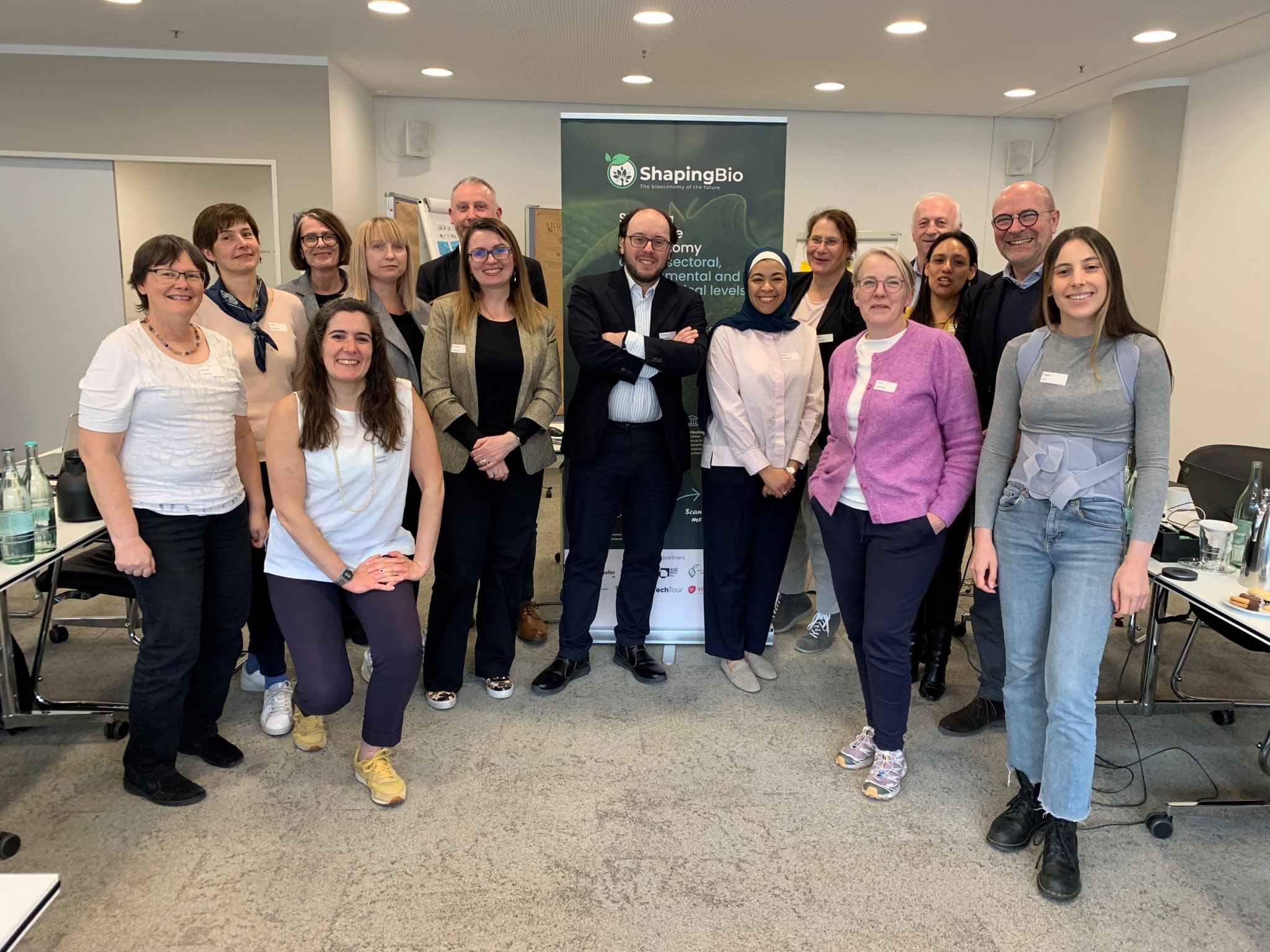ICOS engages in European workshop on bioeconomy innovation.

ICOS bioenergy executive John Brosnan was among a group of international stakeholders who attended a workshop in Frankfurt which looked at developments in the bioeconomy. The ShapingBio project aims at accelerating bioeconomy innovation in the EU. The goal of the workshop was to foster a deeper understanding of what the current key hurdles for cross-sectoral collaboration in bioeconomy are and how policies can enable to best overcome these.
The overall aim of ShapingBio is to support and accelerate bioeconomy innovation and the deployment of new knowledge in the EU and its member states. ShapingBio aims to provide evidence-based and concrete information and recommendations for better policy alignment and stakeholder actions to realize the cross-sectoral potential of the bioeconomy.
It also looks to reduce the fragmentation across biobased sectors and food system and policies across regions, domains, and governance levels. Behind the project are 10 organisations from 9 European Countries including Ireland represented by Teagasc.
According to ShapingBio (an EU funded project), “The transition to a circular bioeconomy and sustainable food systems has high potential to contribute to societal challenges such as climate change, substitution of fuel resources and to contribute to healthy food and diets, which is why innovation in the bioeconomy should be accelerated.
“However, there are several challenges in relation to getting a wider uptake of the innovation generated in the bioeconomy sector. One key barrier is that actors from different sectors, such as agriculture, food and chemistry still have limited exchange with each other, and that “sectoral silos” exist. Moreover, bioeconomy is not an own dedicated policy field – the public funding and regulation is therefore scattered and partly incoherent across ministries or geographical levels.”
Through John Brosnan, ICOS continues to work in collaboration with national and international individuals and organisations in researching the capabilities of developing viable renewable energy options which are beneficial, opportune, and deliverable at co-operative level.
-Ends-